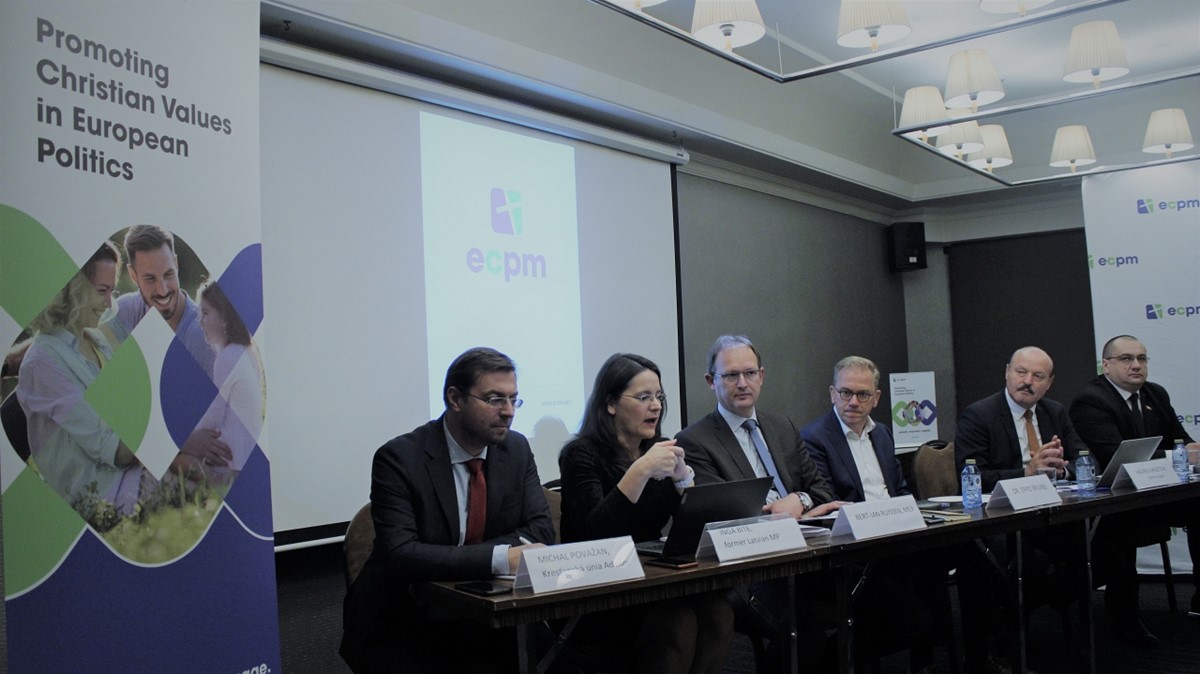
Saturday, June 18, 2022
The Fight for Data Control: the benefits and cost of the European Digital Identity
The European Christian Political Movement (ECPM) gathered for its annual General Assembly in Madrid and, in conjunction, organized an event around the topic of the European Digital Identity- the benefits and risks associated with this proposed new technology.
In the aftermath of the COVID pandemic, the European Union decided there is a need for increased digitalization in Europe and for a centralized solution regarding services and access to them by the European citizens.
Part of the big digital transformation package is also the initiative on a European Digital Identity platform, a proposal meant to amend Regulation (EU) No 910/2014 on electronic identification and trust services for electronic transactions in the internal market (eIDAS). This new proposal for a regulation aims to change the one in 2014 in significant ways and it raises various concerns about data privacy and protection, which our speakers today addressed.
Dr. Eppo Bruins, former Dutch member of Parliament and tech specialist, presented examples of where data sharing is useful (like having only one charging key for all EV charging stations in NL), but warned that in case of centralizing personal data that could be dangerous. He believes this technology is inevitable, but we still have a say in how it will be used and what safeguards and watchdogs will accompany it. Currently, all of our data is owned by the tech companies and they decide what to do with it and how much to sell it for. If the EU wishes to propose this digital identity technology, citizens should demand it is safe. He advocated for a self-sovereign identity (SSI) by which a person owns and controls their own data, without having to rely on an external, third- party. "If the EU doesn't define the standards, then the industry will. And if the European continent doesn't fight back, no other continent will."
MEP Cristian Terheș, former software developer and programmer, warned especially about the dangerous precedent this sets and he described a slippery slope where at the end of it the European citizens will face curtailing of their rights, of movement, social life etc. He spoke about the file on this technology which reached the LIBE committee of which he is a substitute member. He is the rapporteur on the file and recently submitted strong warnings to his colleagues and committee members about what is proposed. Namely, he is concerned that the citizens' data will become a commodity, threatening citizens' right to private life. Most worrying is the European Commission reserving the right to add further legislative acts to this legislation, after it is passed. Mr. Terhes also criticized the Commission's claim that this technology respects the principle of minimization, saying that it is merely an illusion that the user owns their data but in reality it is the administrator of the server who owns it. He also highlighted the proposal that a certificate be added to the root of the most used browser, as that would severely impact security when browsing online.
Both speakers warned about the "chinification" of Europe, referring to the credit system China uses and the intense surveillance and control the government exercises on its citizens.
The two presentations were followed by a panel discussion where MEP Bert-Jan Ruissen, Ms. Inga Bite (lawyer and ECPM AC vice-president) and Michal Považan (policy advisor, Kresťanská únia Slovakia) have discussed the forms of digital identity existing in their countries at the moment and whether a European Digital Identity would be beneficial or not.
Mr. Ruissen was critical about the scope of the proposal and also about the philosophy behind the system, specifically that this is meant to further centralize and federalize the EU. He expressed concern about potential data leaks and about the loophole the Commision created, giving as an example the COVID-19 certificate, which in the beginning was advertised as totally voluntary but in the end turned out to be mandatory.
Ms. Bite admitted that discussions about this technology and Commission proposal have not happened in Latvia yet. She mentioned the recent experiences Latvians had with the COVID-19 certificate which greatly polarised the society and was also the unique solution on the market to comply with the rules. She mentioned losing access (or having it stolen) to the key to one's digital identity and how disastrous that could be for a person.
Mr. Považan echoed what Ms. Bite said and confessed Slovakia hasn't tackled this topic so far either. He focused on the discrepancy in lifestyle and education between citizens in the countryside and those in cities. He argued that a digital identity would divide and discriminate against those who live in remote areas, do not have access to a smartphone or are not tech savvy to use it.
At the end of each part, speakers and panelists answered questions from the audience.
The entire conference can be viewed here.